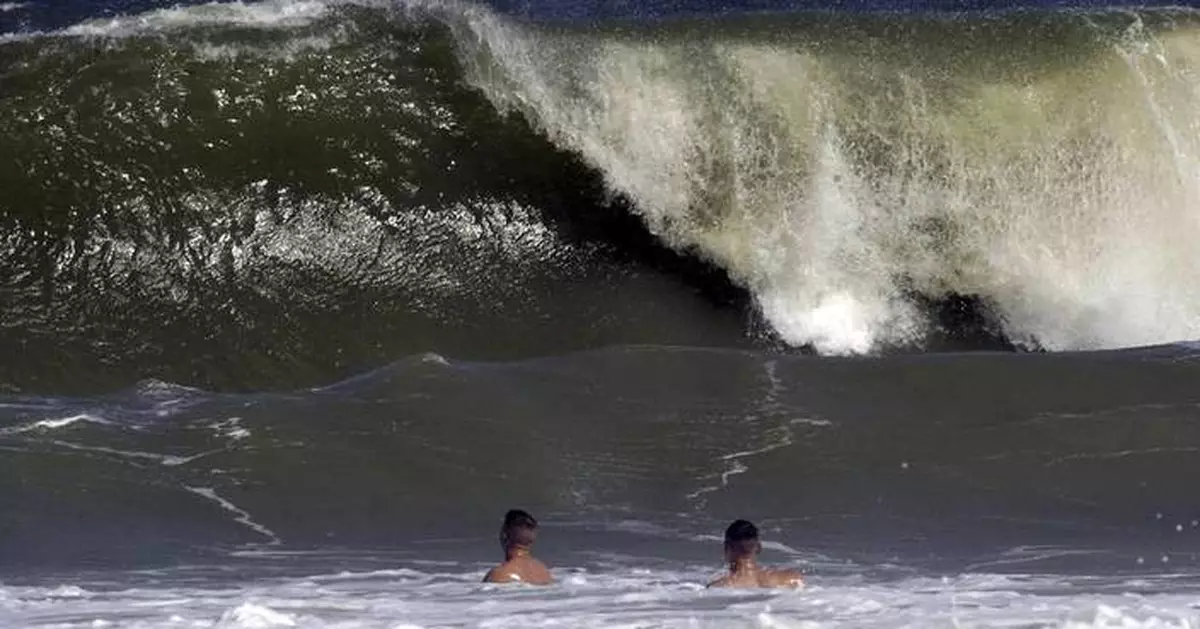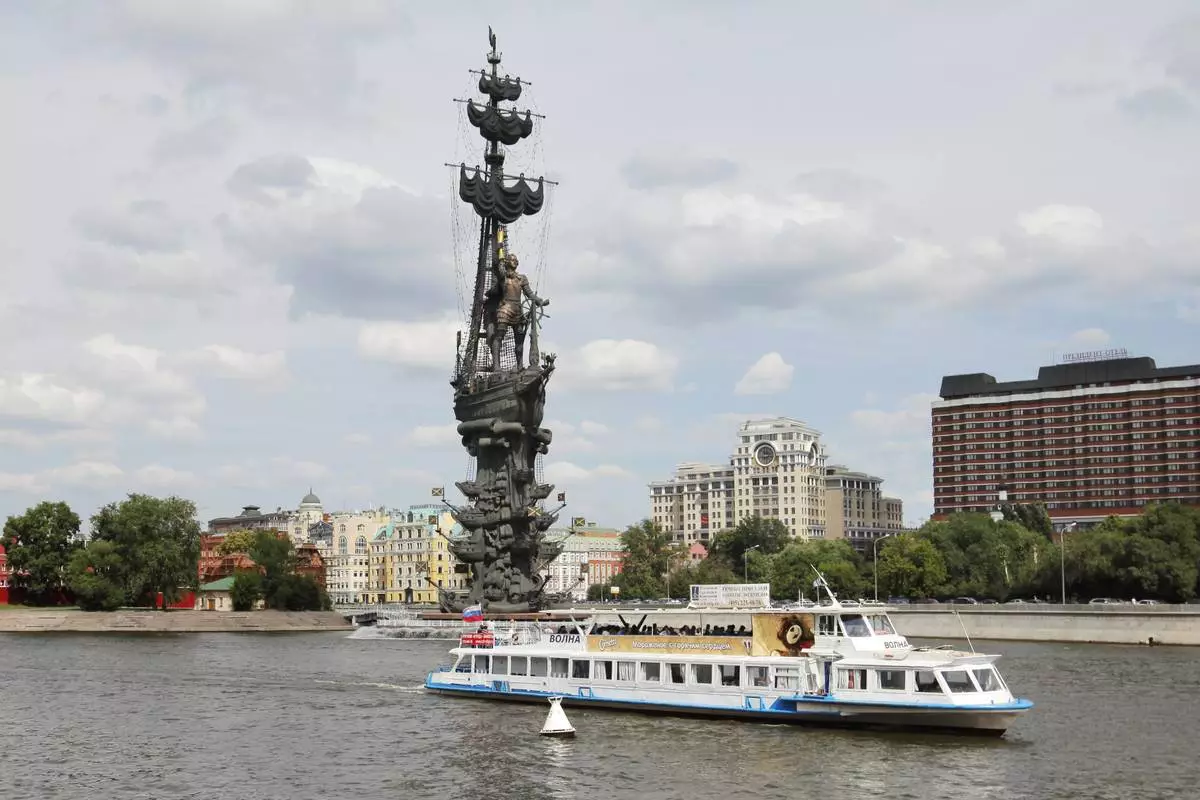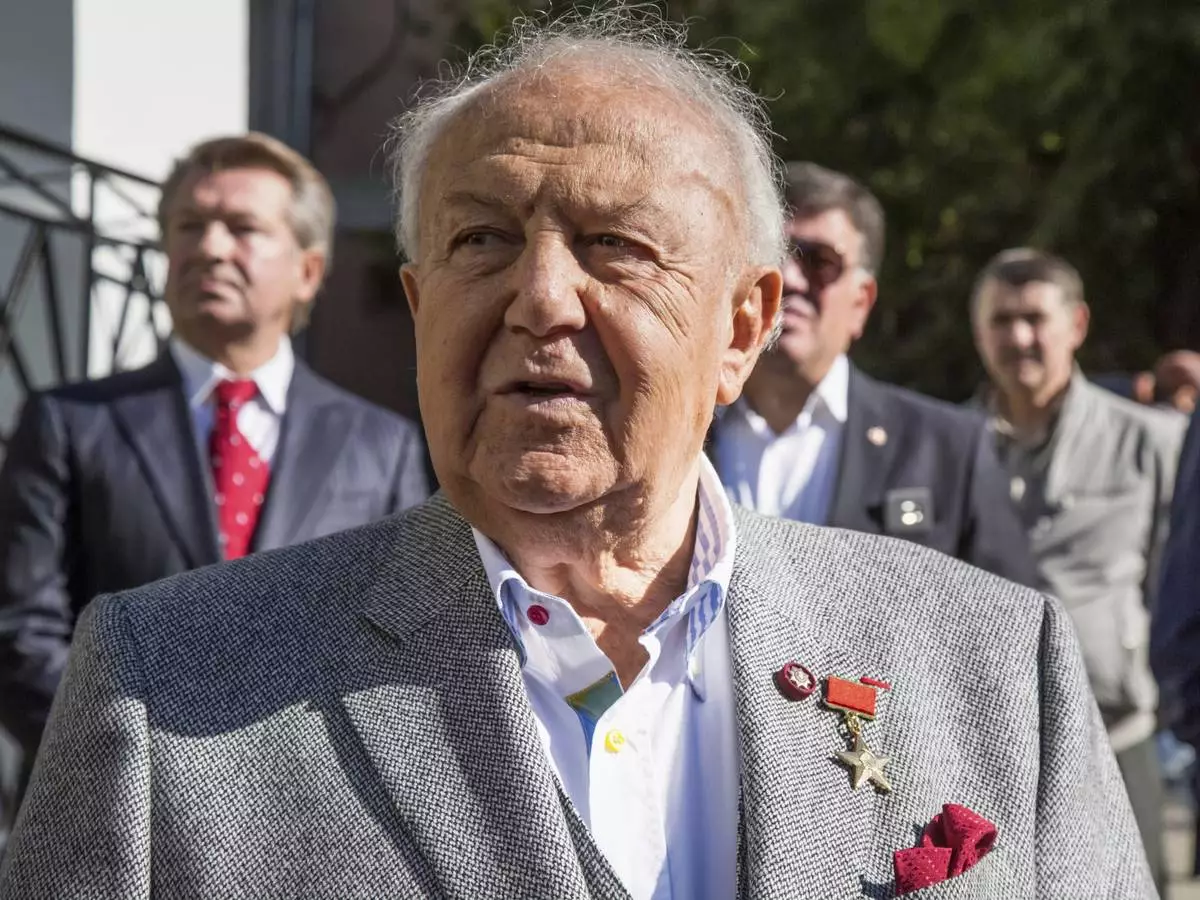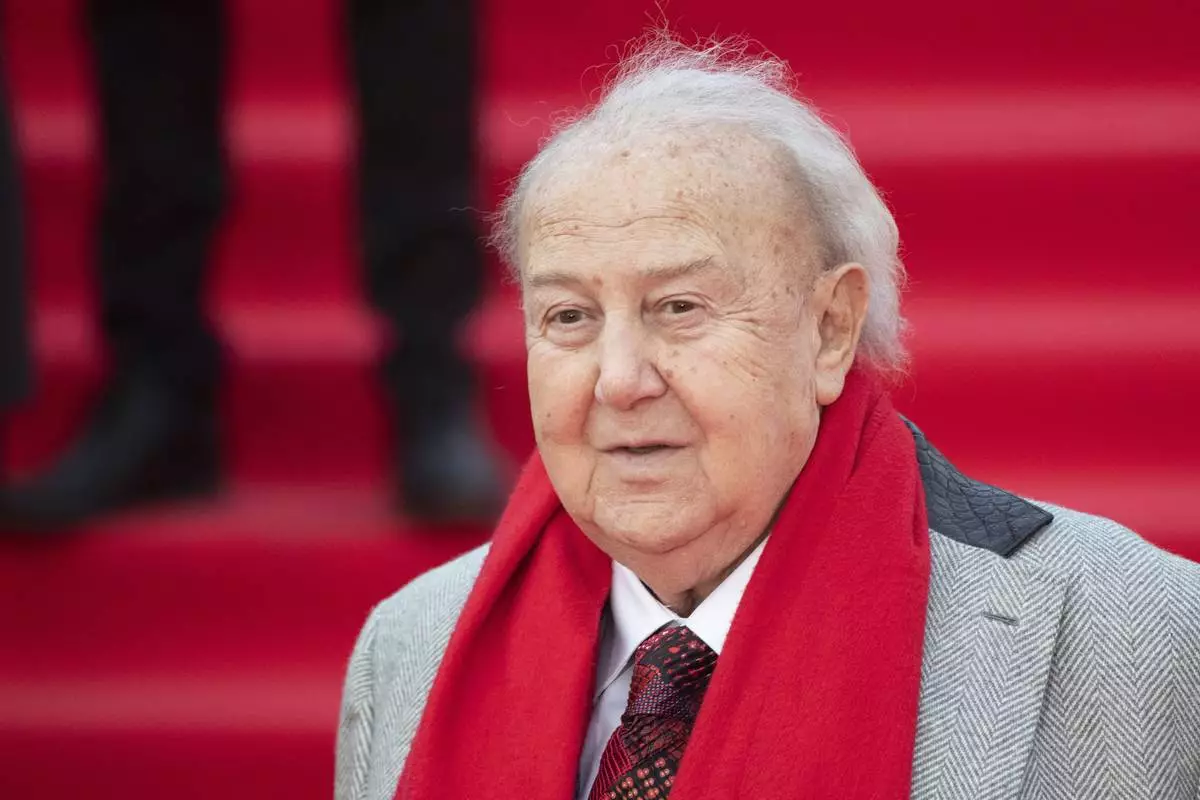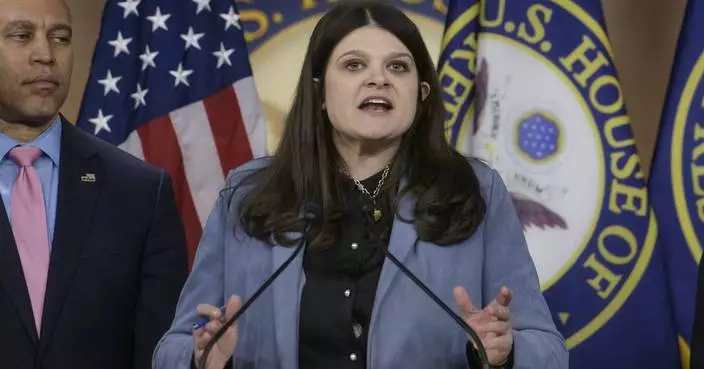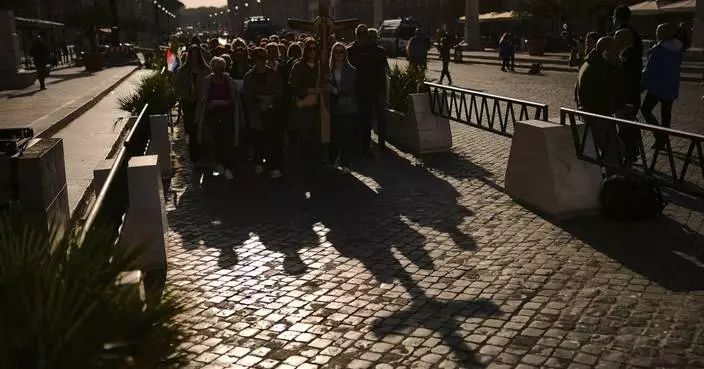A man on Florida’s northeast coast was bitten by a shark this weekend but is now recovering, authorities said Sunday, in the third shark attack in state waters over the past month.
Officials from the Nassau County Sheriff’s Office Marine Unit responding to a distress call Friday morning found the victim in critical condition aboard a boat, losing blood from a “severe” shark bite on his right forearm, according to a social media post from the sheriff's office.
The attack occurred in the Amelia River near Fernandina Beach, about 35 miles (56 kilometers) north of Jacksonville, after the victim caught the shark while fishing, according to sheriff's office public affairs officer Alicia Tarancon.
After officers applied a tourniquet, the victim was taken to shore, where he was airlifted to a local hospital, The Florida Times-Union reported.
On Sunday, Tarancon told The Associated Press that the victim is alert and still recuperating at the hospital.
It’s the third shark attack in Florida in June. The other two attacks in the Florida panhandle in early June left three people injured and led to the temporary closure of beaches in Walton County.
Three more attacks were reported in the U.S. — one in Southern California and two in Hawaii, one resulting in death.
Stephen Kajiura, a Florida Atlantic University professor of biological sciences specializing in sharks, said the number of recent attacks is a “bit high” but is a natural result of more people in the water during summer and warmer waters.
“You’re going to have a higher probability of something happening because more people are coming to the beach,” he said. “It is strange to get so many bites in quick succession, but when you consider the number of people in water right now, it’s not that unusual.”
Another reason for increased shark activity is small bait fish, which sharks feed on, swimming close to the beach, Kajiura said. He also said scientists are seeing a resurgence of some species of sharks, which could mean more sharks are in the water.
According to experts, shark activity is at its peak during warmer months, but also while sharks are seasonally migrating in the fall and spring up and down the coast.
Still, Kajiura said, fatalities are rare.
Kajiura noted that Florida leads the world in shark bites.
Though none were fatal, Florida reported 16 unprovoked shark bite incidents last year, according to the Florida Museum of Natural History’s annual shark attack report. That represents 44% of the 36 total unprovoked bites in the U.S. in 2023, and a little less than a quarter worldwide.
Kajiura urged swimmers not to avoid the water – just be vigilant.
Avoid flashy jewelry or watches, which may appear similar to fish scales in the water, he said, and swim in groups and where there are lifeguards. Also, avoid swimming near schools of fish, where sharks may be lurking.
“You’ve probably been in the water with sharks before, and you didn’t know it,” he said. “Just be careful.”
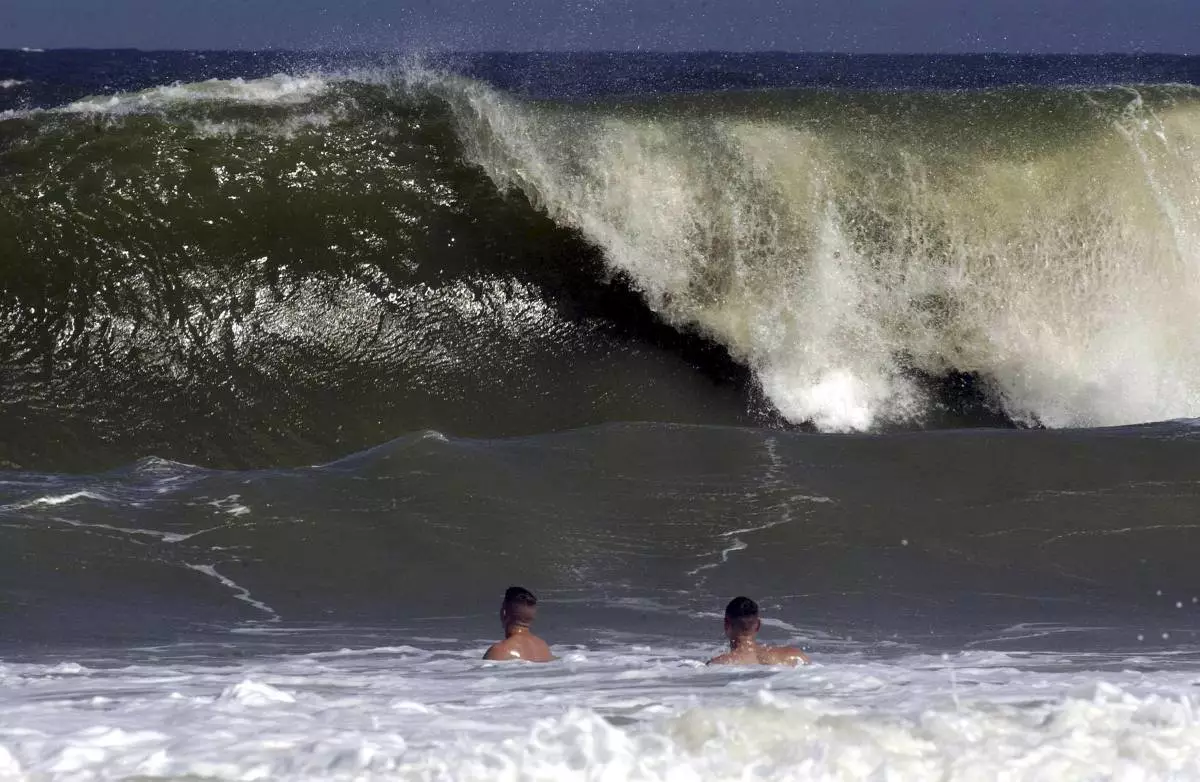
FILE - Shaun Clark, left, and Jim Donnelly watch as a big wave starts to come ashore at Fernandina Beach, in Nassau County, Fla., Sept. 16, 2003. A man on Florida’s east coast was bitten by a shark this weekend, but is now recovering, Nassau County authorities said Sunday, June 30, 2024, in the third shark attack in state waters over the past month. (Bob Mack/The Florida Times-Union via AP)


